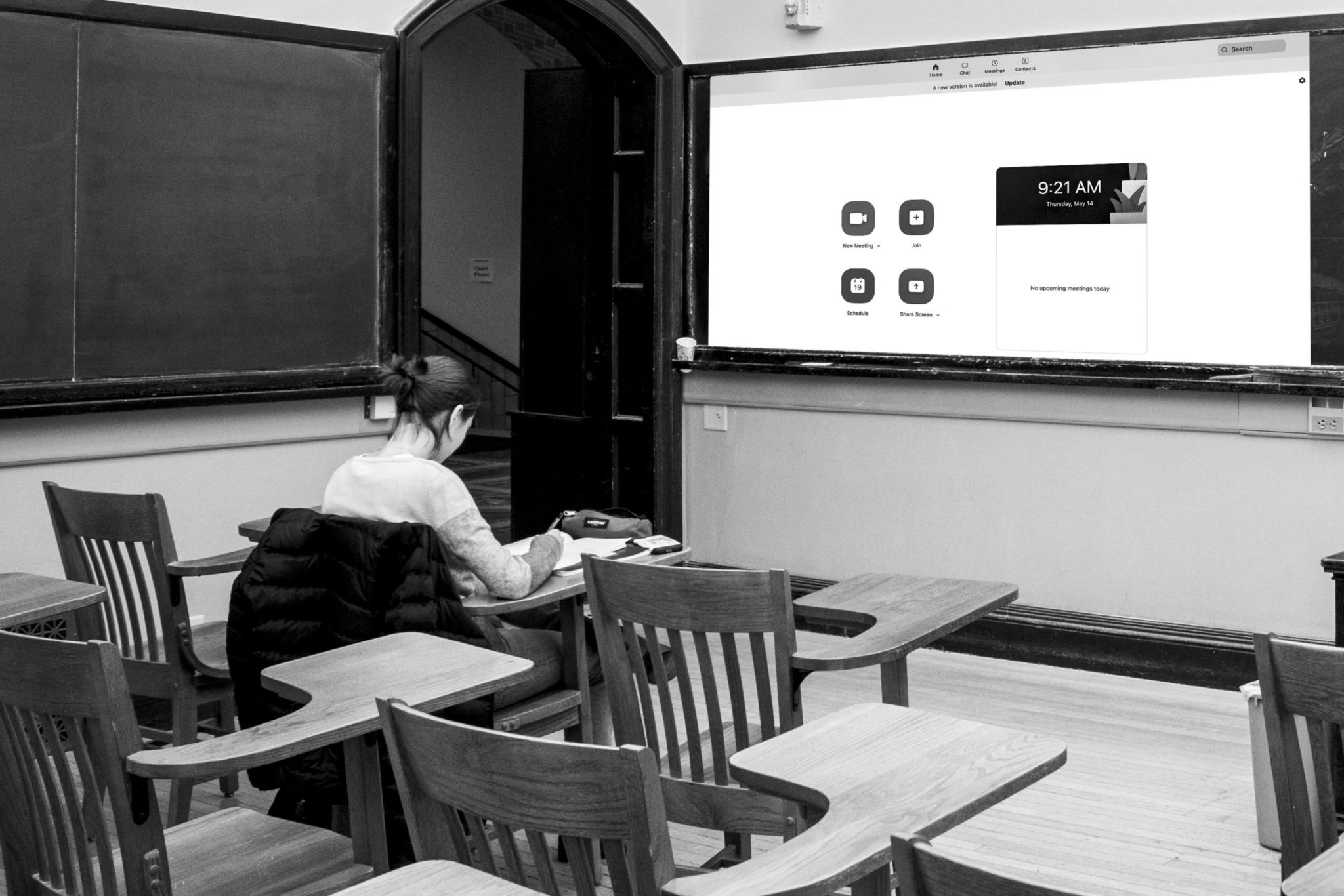
Zoe Berg, Photo Editor
“Zoom fatigue” has become a new reality for Yalies as they partake in a fall semester defined by online classes and extracurriculars.
This phenomenon refers to the seemingly endless exhaustion that students feel when attending multiple Zoom meetings in a day, usually back-to-back. While students seem to be experiencing Zoom fatigue in a variety of ways, it seems some professors are not experiencing it at all.
“Each week Zoom fatigue hits me like a truck,” Kamiye Runsewe ’24 said. “There is little engagement in staring at PowerPoint slides and listening to the same voice for an hour and fifteen minutes … [it’s] an internal battle to pay attention, and I haven’t been winning.”
Runsewe added that she feels professors are trying to encourage engagement. One of her instructors, Professor of Anthropology Claudia Valleggia, designates the first five minutes of her Human Evolutionary Biology class to meditation and mindfulness, which Runsewe believes “goes a long way.” Nonetheless, Runsewe feels that, while professors have been helpful, the University has not done enough to help students adapt to online learning.
“[Having] us learn online for 12 weeks straight was severely misguided,” Runsewe said. “They have moved a lot of typical resources to a Zoom format, but it doesn’t seem like any new resources have been introduced specifically to help us adapt to online school, and if there have, they have not been advertised well.”
Kali Jupiter ’24 said that staring at a screen for too long makes it difficult to focus. According to Jupiter, she tends to “get groggy” and “zone out” in lectures that are not actively “engaged in discussion.”
Brian Lin ’21, a first-year counselor in Berkeley College, believes that “the University is doing a good job.” He believes that there isn’t much that Yale can do, given so many students and professors are simultaneously navigating online learning. He does acknowledge, however, that the experience of upperclassmen might be different from first years’ experience.
“Having last semester as sort of a pilot semester … has made me a bit more used to [online classes] than, say, first years,” Lin said. “I don’t think students should be afraid of taking time for themselves and making sure they’re okay.”
Professor Kim Shirkhani, a lecturer in the English department, believes students have been “resilient and brave” in dealing with online learning. She reported being more conscious of how students are experiencing Zoom fatigue, rather than experiencing it herself.
In addition, Shirkhani noted that virtual learning may be easier in discussion-based classes since students “feel more responsibility” to participate and contribute during class.
“It’s not as terrible as I thought it would be,” Shirkhani said. “They are carrying their weight in a way that surprises me based on how difficult I assume [online learning] is … I’ve been very impressed by that.”
Shirkhani told the News that optional training was available for professors in the University to adapt to online learning. Jerry Feng ’24, a remote student in Los Angeles, California, agrees that professors have been adapting well to the virtual format of classes.
Some professors have lightened the load of the original assignments, Feng said. Feng told the News that being on his computer for classes, homework and extracurriculars has given him headaches and trouble sleeping as a result of blue light. He noted that “being remote is like adding gasoline to a fire for Zoom fatigue.”
Feng reports attending around 17 to 20 Zoom meetings a week, while Jupiter, Runsewe and Shirkhani reported attending around 10 to 12 meetings weekly.
Currently, 80 percent of the undergraduate student population is enrolled for the fall semester.
Ángela Pérez | angela.perez@yale.edu







